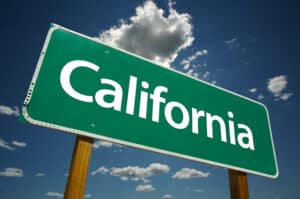An IRC §1031 tax deferred exchange allows owners of real or personal property to defer the recognition of a capital gains tax they would have recognized when they sold their business or investment property. Capital Gains taxes are deferred indefinitely until such time the investor decides to cash out. Generally, the investor is only subject to state taxes in the state where the final property is sold however, some states take a different position whereby exposing the taxpayer to double taxation.
California regulations employ a “Claw back” provision that requires any gain in property value accrued in California at be subject to California state taxes, regardless of whether or not that property was exchanged for one in another state. At the time of a “cash-out” sale the taxpayer would be subject to the state taxes in which the property is being sold, as well as to California for the taxes applicable to the gain attributable while in California, thereby creating a partial double taxation scenario. Other states that have imposed a similar claw back rule for nonresidents who have exchanged in-state properties for out-of-state replacement properties are Massachusetts, Montana and Oregon.
The State of California Assembly passed legislation adding new sections to the California Revenue & Taxation code that require that 1031 Exchange investors that sell California Property and purchase Non-California Replacement Property to file an annual information return with the California Franchise Tax Board (FTB), reporting this Non-California property. The California State taxes that were previously deferred will be due if and when taxpayers sell their new non-California properties and elect to take their profits rather than continuing to defer taxes through another 1031 Exchange.
This information return must be filed in the year of the exchange and every year thereafter in which the gain is deferred. If taxpayers fail to file the annual return, the FTB may estimate taxes due and assess tax, interest and penalties. The new law shall apply to exchanges of property that occur in taxable years beginning on or after January 1, 2014. Although the new requirement to file an annual information return with the state of California is a burden, investors still will never have to pay the California taxes due under the California Claw-Back Provisions as long as they continue to 1031 Exchange from property to property.

Legal 1031 Exchange Services, LLC does not provide tax or legal advice, nor can we make any representations or warranties regarding the tax consequences of your exchange transaction. Property owners must consult their tax and/or legal advisors for this information. Our role is limited to serving as qualified intermediary to facilitate your exchange.
© 2020 Legal 1031 Exchange Services, LLC. All rights reserved.
